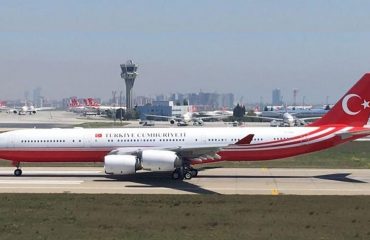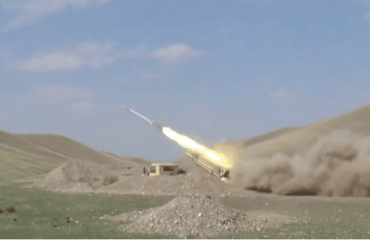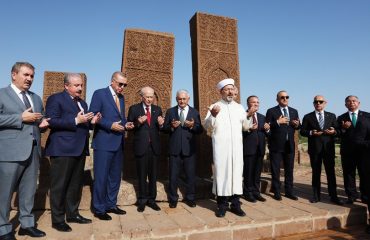As soon as the Ankara court released Osman Sarıgün who was under detention, on April 24, for stamping the main opposition leader Kemal Kılıçdaroğlu on April 21, supporters of President Tayyip Erdoğan’s ruling Justice and Development Party (AKP) were seen taking pictures with him, kissing his hand in praise of the attack
Spokespersons from Kılıçdaroğlu’s Republican People’s Party (CHP) are infuriated. They said the ruling meant any future attack on the opposition leader or members would go unpunished by the judiciary and the government. Sarıgün is a member of the AKP, now given to the disciplinary committee because of the incident. There are social media tags and accounts opened in praise of the attacker, who is showcasing himself as hero; the Turkish judiciary, usually very keen on and watchful of social media, has not taken action.
After the attack, Interior Minister Süleyman Soylu, who was actually present at the funeral ceremony where the attack took place, and who was in charge of the security there, said that Kılıçdaroğlu should have thought twice before getting into election alliances before the March 31 elections. CHP had an election alliance with the centre-right Good Party (GP) in the elections, when the CHP got the municipalities of Turkey’s 5 largest cities including Istanbul and Ankara. What Soylu implies was not the CHP’s alliance with GP but the assumption of both President Erdoğan and his election ally Devlet Bahçeli of the Nationalist Movement Party (MHP) that the voters of the Kurdish problem-focused People’s Democratic Party (HDP) had voted for the CHP candidates in big cities, helping CHP’s win.
That is why, one of the AKP’s objections to the election results in Istanbul was that the votes of those people (about 14 thousand), who had been dismissed from public service –with Kurdish militancy suspicions- in the wake of the military coup attempt of 2016, should be discarded. The Supreme Election Board (YSK) rejected that particular objection on April 24, some others are still in line to be evaluated. On the same day in Istanbul, AKP and the MHP members of in the Municipal Assembly (where they have a majority) rejected a plan to struggle against drug abuse by the mayor-elect Ekrem İmamoğlu, just because it was proposed by him. İmamoğlu could get his license as a mayor 17 days after he narrowly won the election following successive objections by the AKP and recounts, the AKP now wants the election for Istanbul to be repeated, hoping to get it the city back.
Istanbul, with a population of nearly 16 million, has an economy bigger than a number of European countries and it has been in the hands of Erdoğan and his successors for 25 years. There are already reports on the web – and we must look into reports on the web because the so-called mainstream media controlled by pro-government businessmen doesn’t cover such reports- claiming that the municipality budget has been siphoned to certain NGOs close to the AKP.
The debate actually serves for Erdoğan as a smoke screen at a crucial time where the AKP government is to deal with serious problems like the S-400 squeeze between the U.S. and Russia, the end of exemptions from Iran sanctions on oil imports, and a serious economic situation interrelated with all those foreign policy issues. The prolonged antagonism around Kılıçdaroğlu keeps the public opinion occupied with this problem, which is serious enough in itself.
Despite pressures from within the CHP, Kılıçdaroğlu still appeals for his party’s supporters to stay calm and to not respond to “provocations” coming from the government bloc, which “wants to drag the CHP out on the streets in protest. He stresses that any such reaction would be abused by the AKP-MHP bloc as a justification of further pressure on the Election Board to get the Istanbul election repeated.
When Kılıçdaroğlu was elected as the chairman of the CHP he was nicknamed “Gandi Kemal” by the media because of he his resemblance to the Indian leader Mahatma Gandhi, both in physical appearance and in his rather moderate political stance. The nickname was remembered once again when Kılıçdaroğlu broke Gandhi’s record of the 1930 Salt March, by walking 450 km between Ankara and Istanbul in 25 days, in summer of 2017, during the “Justice March” for the release of a CHP member of Parliament, Enis Berberoğlu;, who was eventually released.
Now in spite of the actions described as “provocation” by himself and the demands from within his party, it is Kılıçdaroğlu who calls on everyone to behave responsibly, and to stay calm and patient, perhaps in a stance earning of a nomination as a Second Gandhi. #MuratYetkin
Made with ♥ by tbtcreative.com © 2022 yetkinreport.com All rights reserved.
Yetkin Report · Help · User Agreement · Legal


